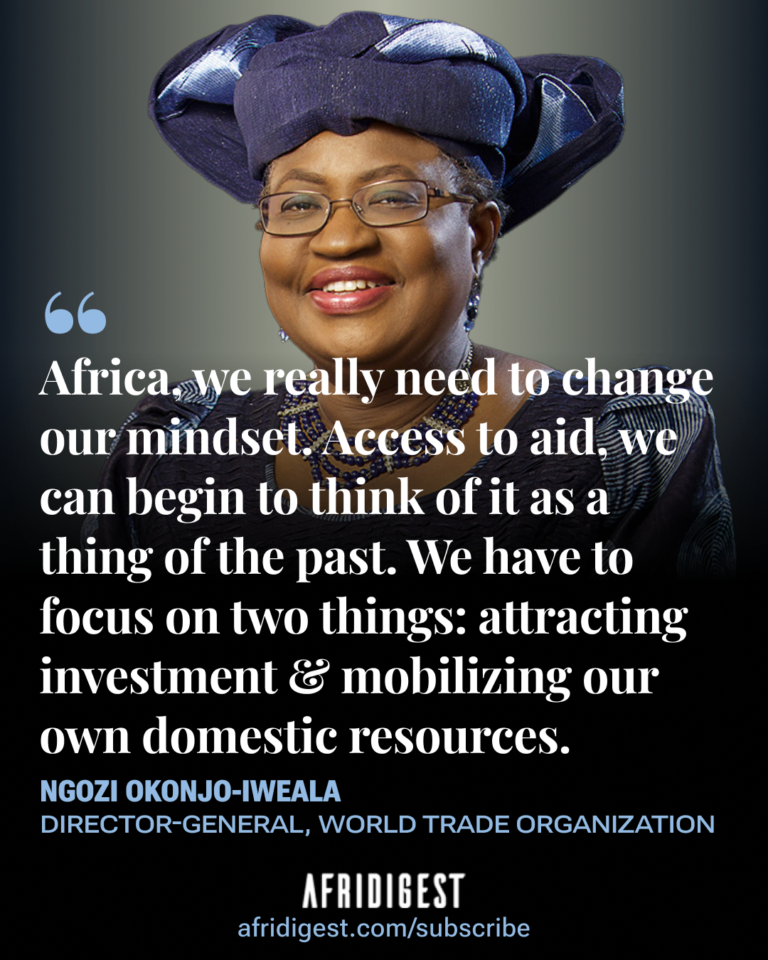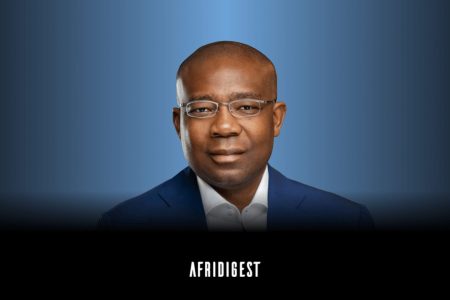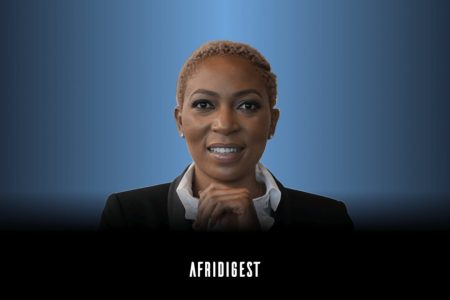African countries have to stop depending on foreign aid.
That’s the unambiguous message from Dr. Ngozi Okonjo-Iweala, Director-General of the World Trade Organization, who has been advocating for a fundamental paradigm shift across the continent.
As the world’s richest countries continue to shrink their aid programs amidst domestic pressures and competing priorities, African nations face an urgent choice: act decisively to replace foreign aid dependency with self-reliance, or risk being left behind.
“Africa, we really need to change our mindset. Access to aid, we can begin to think of it as a thing of the past,” says Okonjo-Iweala, who previously served as Nigeria’s Finance Minister and brings decades of experience in both international finance and African economic policy.

Rather than lamenting the decline of foreign assistance, she sees an opportunity for African nations to take greater control of their economic destinies. Her prescription is straightforward but ambitious: “Africa has to focus on two things: attracting investment and mobilizing our own domestic resources.”
The WTO chief highlights several financial mechanisms that remain significantly underutilized:
- Pension fund redirection: African pension funds control approximately $250 billion in assets, yet the vast majority of these resources are invested outside the continent. A strategic reallocation could channel billions into African infrastructure, manufacturing, and development projects.
- Multilateral development bank capitalization: African multilateral development banks have combined balance sheets worth $70 billion, but remain significantly undercapitalized by member governments. Better funding could multiply their lending capacity.
- Activation of national development banks: The continent’s 80+ national development banks remain underutilized, representing massive untapped potential for domestic financing to support strategic growth sectors.
- Innovative instruments: Diaspora bonds and other creative financing mechanisms have proven successful in pilot projects. Nigeria alone raised $300 million through diaspora bonds in 2017, demonstrating the appetite among African communities abroad to invest in homeland development.
- Value-added mineral processing: The continent’s vast mineral wealth — including lithium, manganese, copper, and coltan — continues to be extracted and exported raw rather than processed domestically, representing billions in lost value creation.
“There are so many creative and innovative ways we can raise resources,” Okonjo-Iweala emphasizes, pointing to these examples as just the beginning of what’s possible.
Beyond specific financial mechanisms, Okonjo-Iweala stresses that sustainable self-financing requires broader economic transformation: “The only way we are going to be able to finance ourselves is to grow our economies, trade more, add value to our products.”
For African leaders, moving beyond aid has transformed from a theoretical aspiration to an urgent imperative requiring immediate action. The old model of development finance is disappearing, and waiting for its return is not a strategy.
“It’s clear that aid is drying up, and whatever little of it there will be, will have to be used much more strategically,” Okonjo-Iweala warns. “We [Africans] have to take responsibility for our [countries’] health as much as we can.”
The success of this imperative will depend on coordinated action from governments, financial institutions, and the private sector across the continent — along with the mindset shift that Okonjo-Iweala identifies as fundamental to progress.
What do you make of the WTO Chief’s vision?
- Can Africa successfully pivot from aid dependency to investment-driven growth in short order?
- What key challenges must be overcome?
- What other creative and innovative ways should governments across Africa explore to mobilize additional resources?
Join the conversation on Linkedin.





Share: